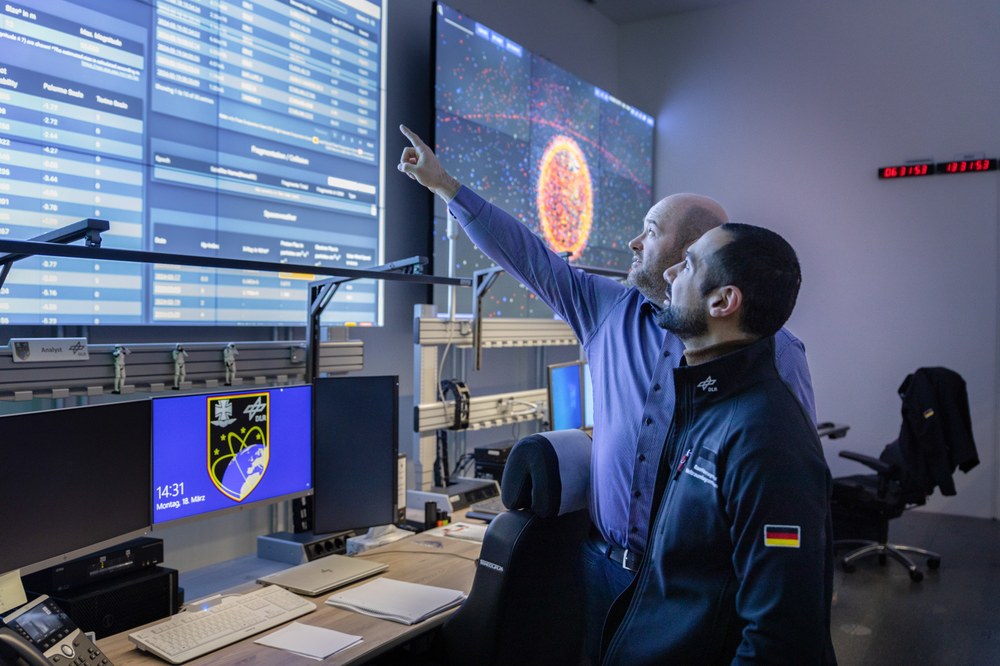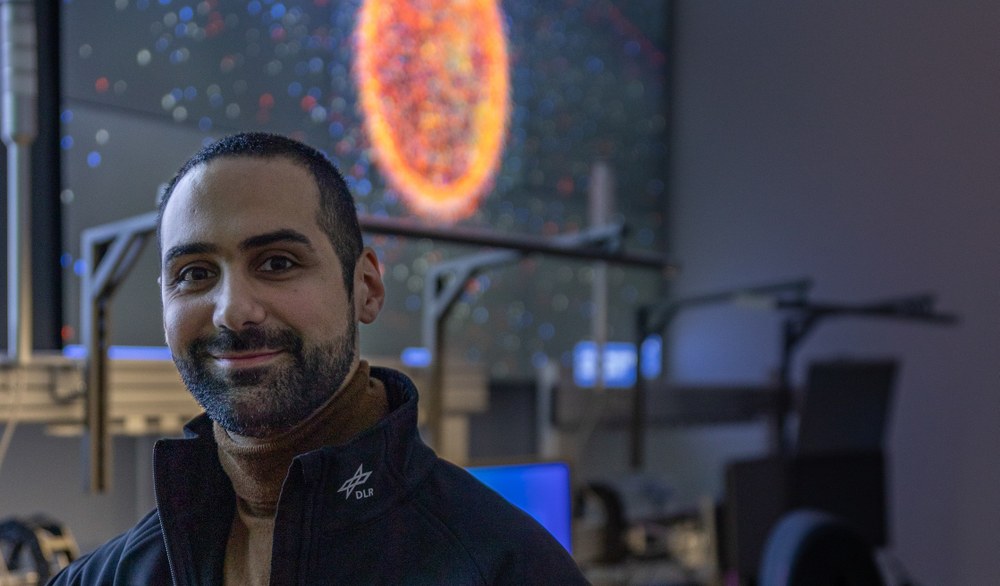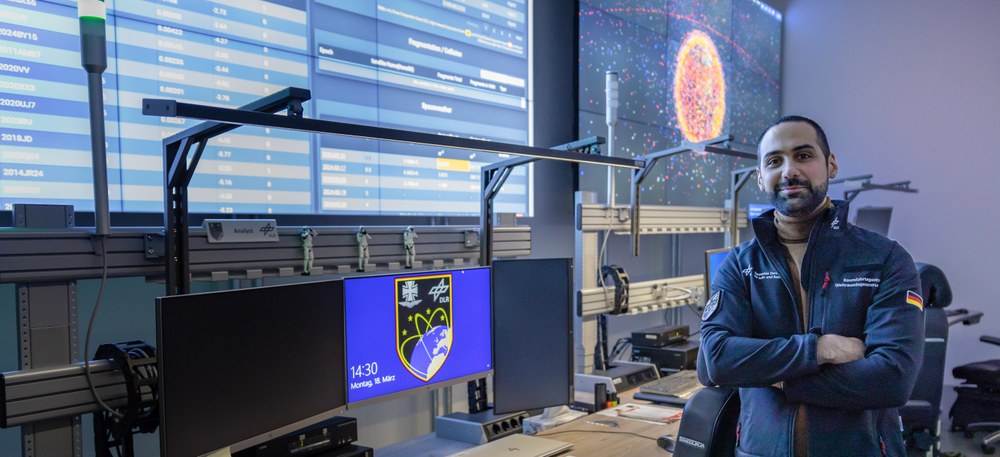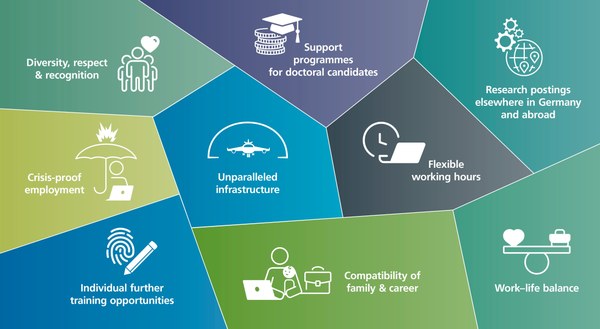Sonay Sarac
Field of study: Peace and Conflict Studies
Now: German Space Agency at DLR
Sonay Sarac has degrees in Political Science and Peace and Conflict Studies. He joined the German Space Agency at DLR as Policy Officer for Space Security in 2022. In this interview, he tells us about his work in the Space Situational Awareness department.
Sonay, what do you look forward to when coming to work in the morning?
Sonay: Above all, my colleagues and the unique atmosphere I work in. Not only do we have very different professional background, but also an approachable team with a strong sense of unity – at two locations.
While one team is dedicated to the GESTRA project (German Experimental Space Surveillance and Tracking Radar), another team is actively engaged in the EU space component EU SST (European Space Surveillance and Tracking).
Things are particularly exciting at the Space Situational Awareness Centre in Uedem, where the staff manages operations together with the military space command of the German Armed Forces. The fact that space is a dual-use environment, that is, a civilian and military domain, is clearly reflected in the organisation and the department, and I really like that.
What are you working on?
„As Head of the Security Committee, my role involves making decisions for EU SST in the event of collision risks or other critical space incidents“
Sonay: I’m involved in EU SST, an EU programme that is a major priority for our national space strategy. EU SST was created to protect European space and ground infrastructure from potential collisions, space debris re-entry and fragmentation events.
In EU SST, I act as head of the safety committee and am primarily involved in security-related matters. In the event of safety-critical incidents, I am informed and react accordingly. In addition, I represent our national interests in EU SST, primarily in close coordination with my team, the German Federal Ministry for Economic Affairs and Climate Action and the German Federal Ministry of Defence. As data security plays a fundamental role in EU SST, especially with regard confidentiality, we are constantly refining our data policy. I’m also currently drafting a business continuity plan, because even a temporary failure of EU SST can have serious consequences for civil security in Europe.

What does your typical working day involve ?
Sonay: It often depends on the topics I’m dealing with. I sometimes receive time-critical ad-hoc requests, which can sometimes be very technical. From time to time, I have to coordinate with my colleagues at the German Space Situational Awareness Centre to ensure that database and sensor issues are dealt with properly. At the same time, I also inform my colleagues about security-related decisions taken in EU SST and their consequences for operational work in the German Space Situational Awareness Centre.
As Head of the EU SST Security Committee, my role involves making decisions for EU SST and coordinating information in the event of collision risks or other critical space incidents. This includes, for example, the decision to activate an internal EU SST task force to inform the EU Commission and the European External Action Service about these incidents.
„Interdisciplinarity plays a key role. Political scientists and people with a technical expertise work closely together in our team.“
With the support of the Security Committee, I’m also drafting various basic documents that serve to establish the security architecture of EU SST. Coordinating the content of these documents with delegates from the 15 Member States is particularly challenging and exciting.
Where and how is your work being used?
Sonay: The results of my work are primarily used within EU SST, which is also important to me on a personal level. The development of the business continuity plan, for example, means that the Member States in EU SST will later be guided by its content in the event of safety-critical incidents. My team and I are therefore making a significant contribution to the further development of EU SST by defining new principles or expanding existing ones.

What are the highlights of your work?
Sonay: To date, the highlight of my work has been the comprehensive further development of a data policy and the harmonisation of divergent positions of the member states. These documents are essential and therefore never easy to coordinate and implement.
What special skills can you make good use of in your job?
Sonay: I’m very comfortable in my role as head of the EU SST Security Committee because I enjoy coordinating issues and taking on responsibility.
Leave us a final thought.
Sonay: Space security is becoming increasingly important from a social and political perspective. In this respect, our work is a future-oriented career field. Interdisciplinarity plays a key role. Political scientists and people with a technical expertise work closely together in our team.




